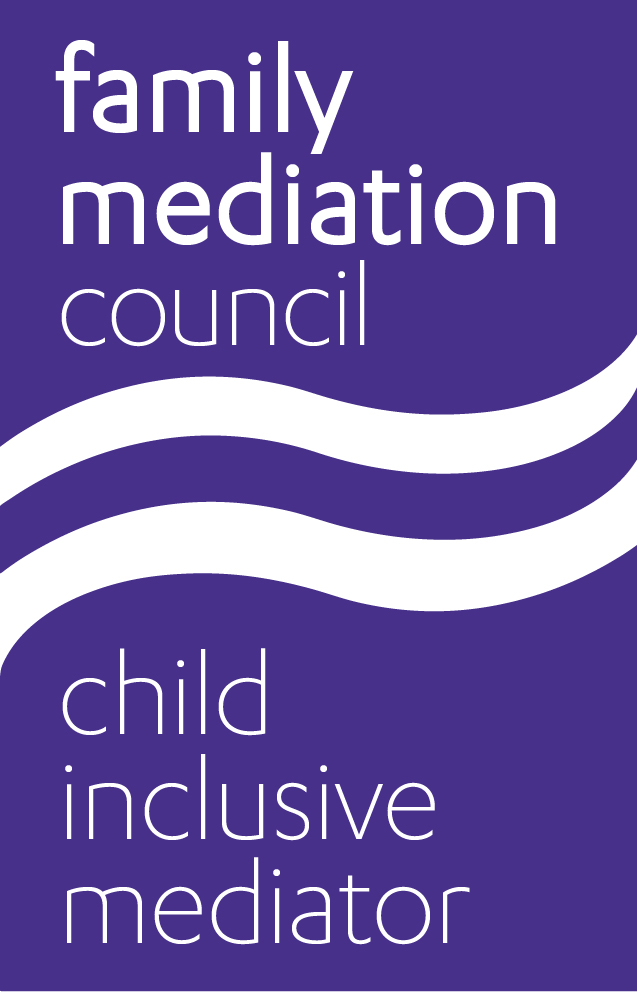Research shows that mediation helps separating parents reach agreements and work together to make the arrangements that will be best for their children. After all when it comes to your children YOU are the experts. These benefits are increased when children aged 10 and above (and possibly younger) have the opportunity to express their views and make suggestions which their parents are willing to consider. This improves communication between children and their parents and family arrangements then work better for all concerned.
Parental worries
Parents often worry about how their children will be impacted by their separation. They naturally want to protect them from worry and distress. Sometimes by trying to protect them from difficult things they don’t talk to them about what’s happening. Whilst this instinct comes from a place of loving and caring for your child you may find that your children are aware of more than you realise and not having information about what might change for them can be a cause for concern. United Nations Convention on the Rights of the Child 1989, Article 12, states that children and young people have the right to be consulted on arrangements that affect their lives.
Often one or both parents may worry that the other parent will tell the child what they should say. They rightly worry that this would put more pressure on the child or children. Children need to talk freely and safely with someone they trust, who won’t take sides, and won’t be reporting to a court. It is common for children to tell each parent what they want to hear because they love you and want to make you happy (especially so when they can see that you are sad or upset). This can be really confusing for parents as they each think the other is coaching their children in what to say. In Child Inclusive Mediation parents are both asked to sign to confirm their agreement that they won’t coach the child in what to say, or ask them about what they said afterwards. This agreement is provided before the mediator meets with the child or children.
Child Inclusive Mediation is confidential (save for where a child reports safeguarding concerns) and it can be reassuring for children that the mediator won’t tell a court what they have said. The child or children decide with the mediator what messages will be passed back to parents. These are purely the children’s views and the mediator doesn’t offer advice or opinions. They may talk about something that is a major problem from their point of view but which their parents don’t understand. By sharing this through Child Inclusive Mediation parents are then able to address the concern – often quite simply.
Parents are often anxious that children might feel they have to make decisions about which parent they prefer, or want to spend more time with. This is absolutely not the case. Child Inclusive Mediation is about giving children a voice in what’s happening for them, NOT any responsibility for decision making. The mediator explains to the child that their parents are willing to listen and to take into account the child (or children’s) views, wishes or suggestions. Very often children offer helpful suggestions that both parents are able to accept, such as making a change in the arrangements for them that was causing arguments. Children worry about things that may seem small to their parents, but are important for them. There is very much an adult perspective and a child perspective and they can be very different in terms of where their focus lies. Including children in mediation shows them that they are respected and that their parents want to understand their feelings and concern. The mediator shares with parents the child’s messages and suggestions and children say it is a relief to talk freely without worrying the mediator will tell their parents something that might upset them.
How Child Inclusive Mediation works
When parents enter family mediation they can discuss with the mediator including their children in the family mediation process. This can be a good step to take before finalising child arrangements so that parents can finalise arrangements with children’s messages and suggestions in mind. Parents will need to attend at least one joint mediation meeting to set up Child Inclusive Mediation, or this may be set up after a few joint meetings. It’s important the process is tailored to the needs of the parents involved. The mediator will discuss arrangements with parents and ensure that both parents are in agreement that their children should meet with the mediator. Parents are also asked to agree that they won’t coach their children in what to say, or ask them about what they said afterwards. Some thought is given to the practical arrangements to make this work in a way that will make everyone feel as comfortable as possible.
The mediator then meets with your child or children for an informal conversation. They can bring a favourite or special toy, or something they would like to show the mediator. The mediator will have toys, distractions (like fidget spinners) and paper and pens available for drawing or doodling; and of course biscuits and soft drinks (subject to parental approval). The aim is to ensure your children are as comfortable and relaxed as possible. This meeting tends to last for 30 minutes to an hour.
A pre-arranged meeting with you as parents then takes place as quickly after this as logistically possible. The meeting then passes on the messages or suggestions made by your child or children as well as some other important pieces of information. This tends to last for around 45 minutes. Each parent then has time to reflect on what their children have said. A further meeting with your children, at a later date, can be arranged if this would be helpful.
The total cost of the meeting with the child and the feedback meeting for parents is £400 or £475 if the feedback meeting takes longer because it takes place on a shuttle mediation basis.
Some further background on the role of Child Inclusive Mediation
The “What About Me” report was the result of a comprehensive review of the family justice system and was published in 2020. Here are some important parts of that report:
“How parents separate has been proven to have a significant impact on the
childhood experience that follows. Following parental separation, ‘warmth and
parental support are linked with social competence, subjective wellbeing, and
lack of externalising problems [in young people]. Relationships matter, not
only between mothers, fathers and their children, but also between mothers
and fathers. Good relationships between parents in intact or separated
families are a protective factor for children”.
“The recent evaluation of the DWP funded Mediation in Mind pilot confirmed the
benefits for children of being consulted. Children who were consulted over or
influenced the making of contact and residence arrangements report higher
degrees of satisfaction with the arrangements. Giving children a voice can
lead to more durable agreements; improved parental alliances; better father–
child relationships and more cooperative co-parenting. Feeling listened to, by
a mediator or a counsellor, empowers young people and helps them to cope
better with the breakdown of their parents’ relationship. Young people who
are listened to report that it is a ‘cathartic’ experience: it makes them feel
respected; they feel that their parents care about their opinions, it gives them
an outlet to discuss their concerns and to understand what is happening and
gives them ‘a sense that somebody is there for them’.
It is telling that in a 2015 survey of young people whose parents had separated 48% said they did not feel that their parents had properly explained to them what would happen after the separation. Children are often aware of far more than their parents realise; they may have experiences of separation through friends or classmates at school, and can have worries that their parents know nothing about. There can be many unintended consequences for children whose parents have separated in terms of emotional, mental health, social and even physical health problems. There can also be behavioural issues.
As mediators we see that even those who have a difficult relationship gain something from being able to hear each other’s views, thoughts, priorities and worries in mediation – even where they don’t agree with them. Issues around children can often be stuck because each parent has a different perspective on either what is in the children’s best interests, or what the children themselves want. Giving children a voice can help to move the focus away from what parents think their children think and feel to the views they themselves express.
For more information you may find useful:
Our blog on Child Inclusive Mediation
A simple way to think about co-parenting
If you’d like to talk to a mediator about setting up Child Inclusive Mediation then please contact us. You may also find some of our free support useful.




